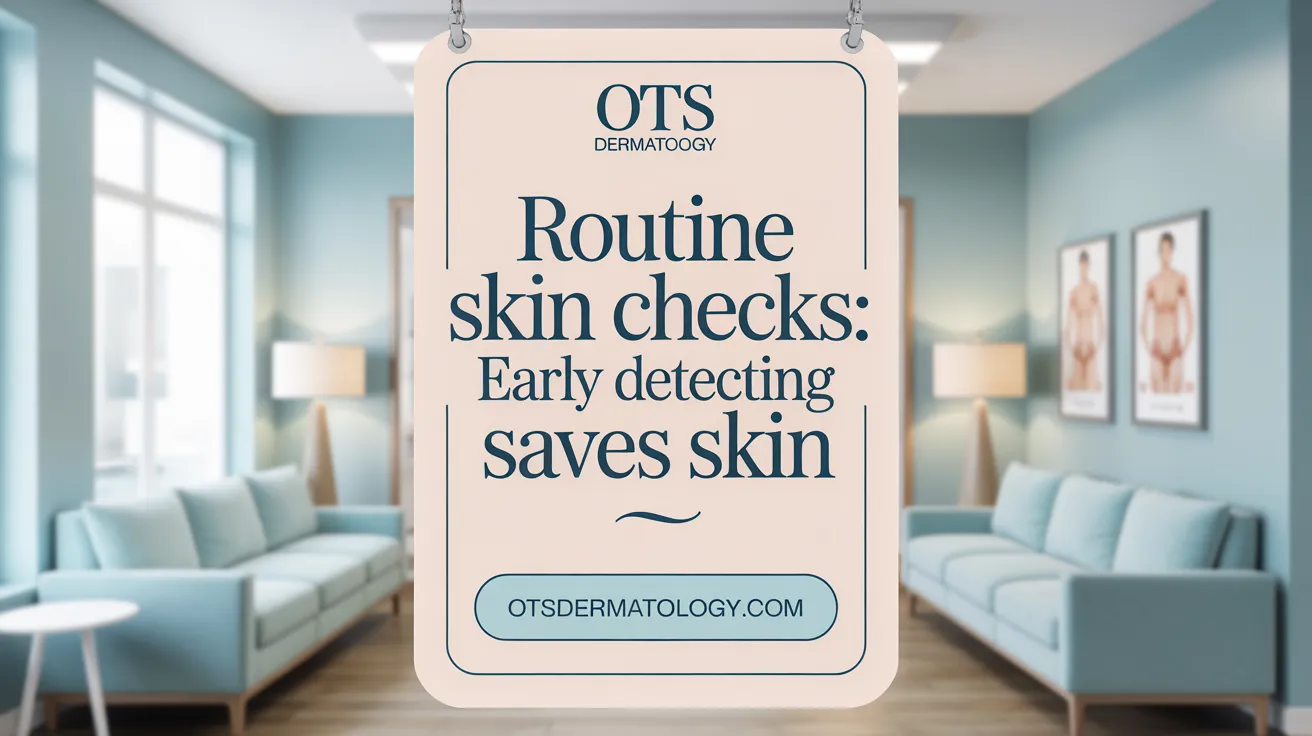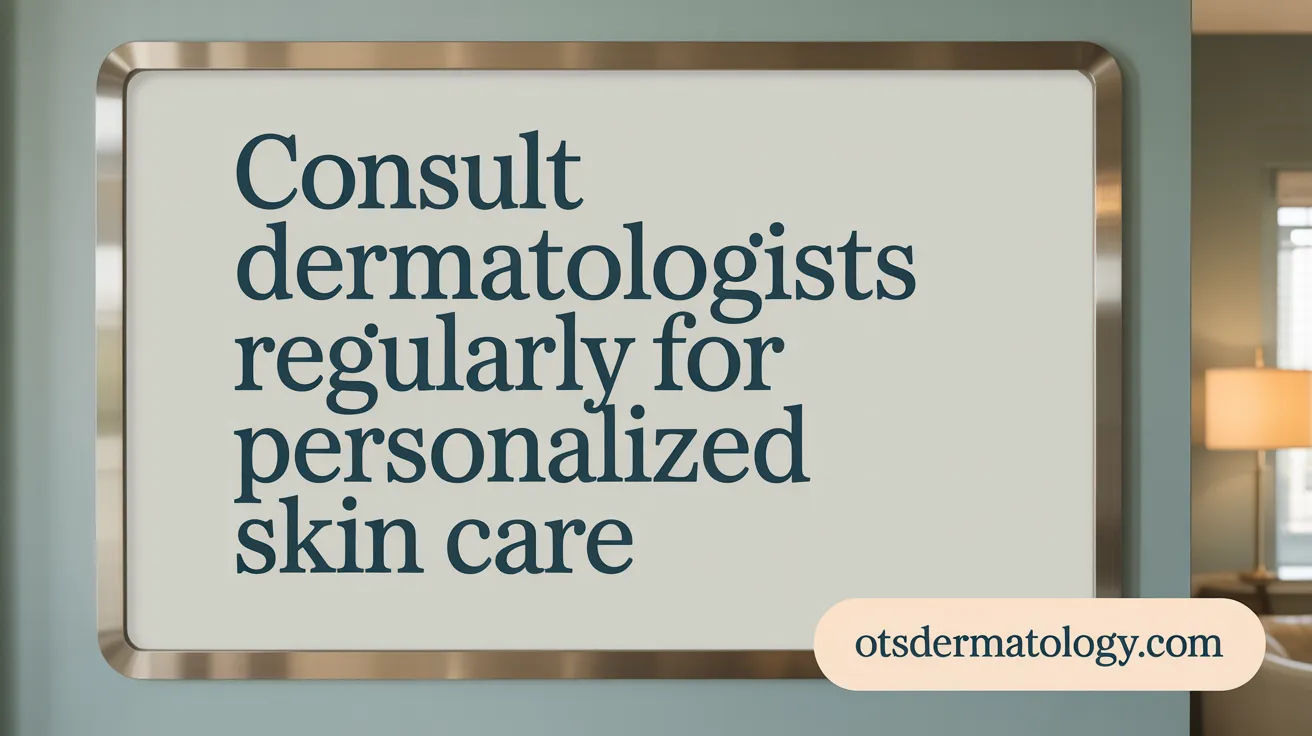Understanding Lifelong Skin Health
Achieving and maintaining healthy skin over the course of a lifetime requires a combination of preventive care, expert guidance, and mindful lifestyle habits. Dermatologists emphasize that skin health is not just about aesthetics but also about protecting the body’s largest organ from damage and disease, particularly from the harmful effects of ultraviolet (UV) radiation. This article explores key dermatology-backed strategies to support skin wellness at every age and shields you from premature aging and skin cancer.
Core Principles of Lifelong Skin Health and Preventive Dermatology
 The fundamental principles of lifelong skin health and preventive dermatology revolve around consistent sun protection measures. Applying a broad-spectrum sunscreen with SPF 30 or higher daily, seeking shade during peak UV hours (10 a.m. to 4 p.m.), and wearing protective clothing such as long sleeves, wide-brimmed hats, and UV-protective sunglasses are essential strategies to minimize UV exposure. UV radiation from the sun is the leading cause of skin aging and skin cancer, making these habits vital.
The fundamental principles of lifelong skin health and preventive dermatology revolve around consistent sun protection measures. Applying a broad-spectrum sunscreen with SPF 30 or higher daily, seeking shade during peak UV hours (10 a.m. to 4 p.m.), and wearing protective clothing such as long sleeves, wide-brimmed hats, and UV-protective sunglasses are essential strategies to minimize UV exposure. UV radiation from the sun is the leading cause of skin aging and skin cancer, making these habits vital.
Alongside sun safety, maintaining proper hydration and adopting a balanced diet rich in fruits, vegetables, and lean proteins can strengthen skin from within. Incorporating foods high in antioxidants, like berries, leafy greens, and green tea, helps combat oxidative stress and supports skin repair. Gentle skincare practices—such as mild cleansing, moisturizing promptly after washing, and avoiding harsh or irritating products—help preserve the skin’s barrier and prevent dryness and damage.
A healthy lifestyle also entails avoiding harmful habits like smoking, which narrows blood vessels and damages collagen and elastin, accelerating skin aging and increasing cancer risk. Managing stress through adequate sleep, physical activity, relaxation techniques, and social engagement further enhances skin resilience and overall health.
Routine skin self-examinations enable early detection of irregular moles or changes that could signal skin cancer. Regular visits to a dermatologist for comprehensive skin checks are recommended, especially for individuals with risk factors or suspicious lesions. Tailoring skincare routines according to different age groups—using specific treatments like retinoids in older adults or sun protection from an early age—ensures optimal skin resilience and appearance over the years.
In essence, combining diligent sun safety, gentle skincare, healthy lifestyle choices, routine monitoring, and professional medical advice forms the cornerstone of enduring skin health and effective skin cancer prevention throughout a person’s life.
Dermatologist-Recommended Habits for Sustained Skin Vitality

What expert tips do dermatologists recommend for maintaining healthy skin over time?
Dermatologists emphasize the importance of establishing a consistent skincare routine tailored to your skin type. Gentle cleansing with mild products, applying moisturizer promptly after washing, and daily use of broad-spectrum sunscreen with SPF 30 or higher are foundational practices that help preserve the skin's barrier and prevent damage.
Sun protection is crucial; seeking shade during peak UV hours, wearing protective clothing such as long sleeves, wide-brimmed hats, and UV-protective sunglasses, along with reapplying sunscreen every two hours, can significantly reduce the risk of premature aging and skin cancer.
Lifestyle factors also play a vital role. Avoiding smoking is essential, as it narrows blood vessels, depletes oxygen and nutrients, damages collagen and elastin fibers, and accelerates skin aging. Limiting alcohol intake and managing stress through adequate sleep, physical activity, and relaxation techniques like meditation or yoga can decrease skin sensitivity and prevent conditions such as acne or eczema.
Dietarily, a balanced intake of fruits, vegetables, whole grains, and lean proteins provides antioxidants and nutrients vital for skin health. Staying well-hydrated supports skin elasticity and a radiant appearance.
Regular skin evaluations by a dermatologist are recommended to detect early signs of skin issues, including skin cancer. Routine professional skin checks and personalized advice ensure proactive maintenance of skin health over the years.
By combining consistent skincare, sun protection, healthy habits, and professional monitoring, individuals can enjoy healthier, more resilient skin throughout their lives.
Sun Protection: The Cornerstone of Skin Damage Prevention

How can individuals prevent skin damage caused by sun exposure and UV rays?
Individuals can safeguard their skin by consistently applying broad-spectrum sunscreen with a minimum SPF of 30 to all exposed areas. Reapplication every two hours, or more often if swimming or sweating, is crucial. Wearing protective clothing such as long-sleeved shirts, wide-brimmed hats, and UV-protective sunglasses can significantly cut down on UV radiation reaching the skin. Seeking shade during peak hours—typically between 10 a.m. and 4 p.m.—reduces direct sun exposure. Avoiding tanning beds is equally important, as they emit high levels of UV rays that increase skin cancer risk and accelerate skin aging. Recognizing that UV rays can penetrate clouds and reflect off surfaces like water, snow, or pavement highlights the need for consistent protection, regardless of weather conditions. Regular skin exams, self-conducted monthly and annual dermatologist visits, aid early detection of damage or potential skin cancers, allowing for prompt treatment.
What skin protection measures and sun safety practices are essential for all ages?
Effective sun safety begins with daily use of broad-spectrum sunscreen with SPF 30 or higher, applied generously to all exposed skin 30 minutes before outdoor activity. Reapplication every two hours is necessary, especially during high UV index days or after swimming and sweating. Protective clothing is vital; this includes long-sleeved shirts, wide-brimmed hats, and UV-protective sunglasses that block UVA and UVB rays. For young children and infants, physical barriers like clothing and shade are key, minimizing direct sun exposure. Reflective environments like beaches or ski slopes demand extra precautions due to the increased UV impact.
It's also recommended to seek shade during midday hours, wear UPF clothing, and avoid indoor tanning beds which significantly heighten skin cancer risk and hasten skin aging. Regular skin self-examinations to monitor moles or spots for changes, combined with annual dermatologist screenings, enables early detection and intervention. Protecting skin from UV is a lifelong commitment that adapts across different ages and environments, emphasizing that consistent vigilance saves skin health.
More information about sun protection and preventing skin damage can be found by searching for 'sun protection skin damage prevention dermatology.'
Understanding and applying these protective strategies plays a vital role in maintaining healthy skin and reducing the long-term risks associated with UV exposure.
Effective Skincare Regimens and Product Recommendations
What are effective skincare routines and products recommended by dermatologists for different skin types?
Dermatologists emphasize that an effective skincare routine is tailored to your specific skin type, such as dry, oily, sensitive, or combination skin. A fundamental step involves gentle cleansing with a mild, suitable cleanser—foaming for oily skin, hydrating formulas for dry skin, and fragrance-free options for sensitive skin.
Moisturizing is crucial, and products should contain ingredients like hyaluronic acid, ceramides, or glycerin to maintain hydration and restore the skin barrier. For sun protection, daily application of a broad-spectrum sunscreen with at least SPF 30 is recommended to prevent aging signs and skin cancer.
Targeted treatments can enhance skin health. Antioxidants like vitamin C serums help protect against environmental damage, brighten skin, and reduce pigmentation. Retinoids —available OTC as retinol or through prescriptions—are highly effective for anti-aging, improving fine lines, stimulating collagen, and promoting skin renewal.
Exfoliation should be done once or twice weekly with chemical exfoliants such as enzymes or gentle acids to remove dead skin cells without causing irritation.
Product selection should match skin concerns: niacinamide for hyperpigmentation, salicylic acid for acne-prone skin, azelaic acid for redness and uneven tone, and peptides for collagen support.
Establishing consistent daily habits, including reapplying sunscreen every two hours, significantly benefits long-term skin health. Regular visits to a dermatologist can help refine skincare routines and address specific issues effectively.
Recognizing Early Signs and Preventive Responses to Skin Issues
How can individuals recognize early signs of skin problems and what preventive actions should be taken?
Observing your skin regularly is vital for detecting early signs of potential issues. Look out for new or enlarging moles, changes in the shape, size, or color of existing moles, which could indicate melanoma, a serious form of skin cancer. Persistent redness, dryness, itching, or sores that do not heal within a few weeks might also signal underlying skin conditions.
Other symptoms to watch for include dark patches, rashes, or bumps that change over time, as well as peeling or scaling skin. These signs should never be ignored, as early detection can significantly improve treatment outcomes.
Preventive skincare involves maintaining overall skin health. This includes using gentle cleansers, applying moisturizers suitable for your skin type, and protecting your skin from excessive sun exposure with broad-spectrum SPF 30+ sunscreen.
Good habits such as avoiding harsh irritants, pressure, or injury to the skin help prevent issues like ulcers or keloids. Regular skin self-examinations—ideally monthly—are easy practices to spot abnormalities early.
If any unusual changes or persistent symptoms are noticed, consulting a dermatologist promptly is crucial. Professional evaluation can confirm the diagnosis and initiate appropriate treatment, especially for suspicious moles or persistent skin spots.
Supporting skin health through a balanced diet, adequate hydration, and stress management also reduces the risk of developing skin problems. Effective prevention and early response are the best strategies to keep skin healthy over a lifetime.
More info search query: early signs skin problems prevention dermatology
The Vital Role of Dermatologists in Lifelong Skin Care
Dermatologists are essential partners in maintaining healthy skin throughout life. They are experts in diagnosing and treating a wide range of skin conditions, from minor irritations to serious issues like skin cancer. This professional guidance ensures early detection of potentially dangerous changes, such as suspicious moles or unusual spots, through regular skin exams.
One of their key roles is providing personalized skincare advice. Based on an individual’s skin type, concerns, and medical history, dermatologists recommend suitable products and routines. This tailored approach helps optimize skin health, prevent premature aging, and manage chronic skin conditions such as eczema, psoriasis, and acne.
Skin cancer detection is another critical aspect of their work. Regular skin self-exams complemented by professional screenings can identify early signs of malignancies, significantly increasing treatment success. Dermatologists educate patients on how to perform self-examinations and recognize warning signs based on the ABCDEs of moles— asymmetry, border irregularity, color variation, diameter, and evolution.
Beyond treatment, dermatologists play a vital role in education on prevention and lifestyle modifications. They emphasize the importance of daily sun protection with broad-spectrum SPF 30+ sunscreens, protective clothing, shade, and avoiding tanning beds. They also advise on habits like smoking cessation, proper hydration, and balanced nutrition that support skin integrity.
The benefits of dermatological care extend beyond physical health. Improved skin appearance can boost confidence and mental well-being. Preventing skin cancer and minimizing signs of aging ultimately contribute to a higher quality of life.
In sum, dermatologists' involvement in regular skin assessments, personalized advice, early detection, and education is crucial for lifelong skin health. Their expertise ensures that skin conditions are managed effectively, risks are minimized, and individuals maintain not only healthier skin but also greater self-esteem.
Lifestyle, Diet, and Age-Specific Strategies for Skin Wellness
What lifestyle choices and dietary factors influence skin health and what age-specific skincare should be considered?
Choosing healthy habits greatly benefits skin health. Maintaining a balanced diet for skin health rich in antioxidants, such as fruits, vegetables, and lean proteins, helps combat oxidative stress and supports overall skin vitality. Staying well-hydrated by drinking plenty of water keeps skin plump and reduces dryness.
Avoiding smoking is crucial because tobacco narrows blood vessels, depletes skin oxygen and nutrients, and damages collagen and elastin fibers, accelerating aging and increasing skin cancer risk. See more on smoking effects on skin. Limiting alcohol intake also helps prevent dehydration and inflammation, which can impair skin quality.
Sun protection remains vital throughout life. Using broad-spectrum sunscreen with at least SPF 30, wearing protective clothing like wide-brimmed hats and UV-protection sunglasses, and seeking shade during peak UV hours are essential steps to prevent UV damage, skin aging, and cancers.
As we age, skin care routines should adapt. Older adults benefit from incorporating retinoids and vitamin C to stimulate collagen production and diminish wrinkles. Gentle cleansing and moisturization are necessary to combat dryness, which increases with age, as described in Skin care in your 40s and 50s.
Advanced treatments like chemical peels, laser resurfacing, and Botox can improve skin texture, elasticity, and reduce fine lines but should be overseen by dermatologists. Consistent sun protection, a nutrient-rich diet, and tailored skincare across different life stages are the foundation of maintaining healthy, youthful skin.
What methods are effective in preventing skin aging and promoting overall skin wellness?
Effective skin aging prevention involves multiple strategies. Daily application of broad-spectrum SPF 30 or higher sunscreen is fundamental to shield against UVA and UVB rays, which cause premature aging and skin cancers. Protective clothing and seeking shade during the sun's strongest hours further minimize UV exposure.
A healthy lifestyle supports skin health—eating colorful fruits and vegetables rich in antioxidants, staying properly hydrated, quitting smoking, and controlling alcohol consumption all slow aging signs (effects of smoking on skin).
Gentle skincare routines help maintain the skin barrier. Using mild cleansers, hydrating ingredients like hyaluronic acid, and antioxidant serums such as vitamin C shield skin from environmental damage.
Managing stress through adequate sleep, exercise, yoga, and relaxation techniques reduces inflammation and prevents conditions like acne and skin sensitivity (stress management for skin health).
For targeted anti-aging effects, dermatological treatments including retinoids and chemical peels can encourage skin renewal. When performed under medical supervision, these therapies can significantly enhance skin appearance and resilience.
Embracing a Lifetime of Skin Wellness
A commitment to lifelong skin health involves more than diligent daily routines; it requires an informed approach integrating sun protection, healthy habits, expert advice, and timely medical interventions. Preventive dermatology empowers individuals to safeguard their skin against aging and disease while optimizing its natural beauty and function throughout the decades. Regular collaboration with dermatologists, recognition of early skin changes, and tailored skincare help foster resilience against environmental and biological challenges. By embracing these expert tips and adjustments across life stages, you can enjoy vibrant, healthy skin for years to come.
